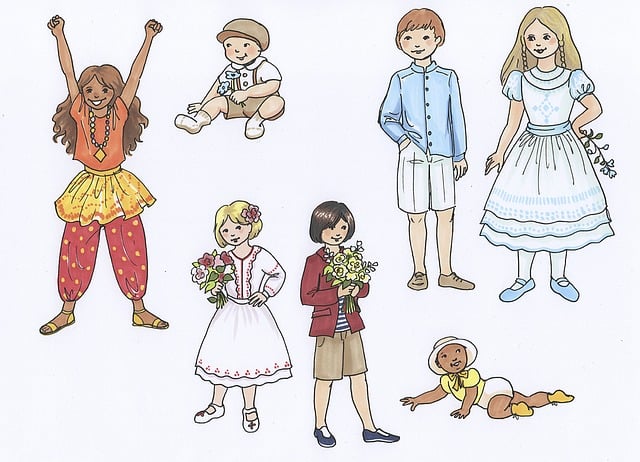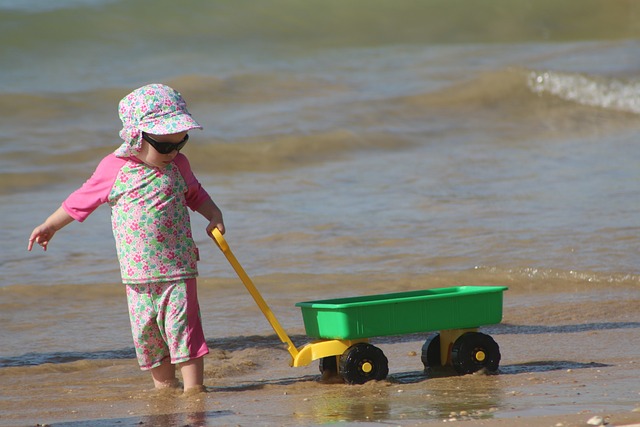Juvenile law is a complex web of protections for minors, encompassing child welfare, delinquency, and neglect cases. Specialized lawyers interpret laws, advocate for children's rights, and guide them through the juvenile court system. Child welfare attorneys ensure fair treatment for at-risk youth, collaborating with professionals to provide holistic legal services including foster care legal support. Effective navigation of these laws protects minors from abuse, neglect, and exploitation while fostering a safer future for all children.
Navigating child protection laws can be complex, but understanding the intricacies of juvenile law is crucial for ensuring the safety and well-being of minors. This comprehensive guide delves into key aspects of child welfare, including the legal framework that safeguards vulnerable populations. From recognizing signs of neglect and abuse to navigating juvenile court procedures, this article equips parents, guardians, and advocates with vital knowledge. Discover the rights of children and parents alike, explore special considerations for at-risk groups, and learn how a qualified juvenile lawyer can provide foster care legal services and represent victims of child abuse.
- Understanding Juvenile Law: Navigating Legal Protections for Minors
- Child Welfare and Its Legal Framework: Ensuring Safe Guardianship
- Juvenile Court Procedures: Rights of Children and Parents Alike
- Advocacy for Vulnerable Populations: Special Focus on Neglect, Abuse, and Delinquency
Understanding Juvenile Law: Navigating Legal Protections for Minors

Navigating Juvenile Law is essential for ensuring the protection and well-being of minors. This intricate field encompasses a web of legal protections designed to safeguard children from abuse, neglect, and exploitation. Understanding the nuances of juvenile law involves familiarizing oneself with concepts like juvenile delinquency, child welfare, and foster care legal services. A qualified juvenile lawyer or child rights lawyer is pivotal in interpreting these laws, advocating for minors’ best interests, and guiding them through the complex juvenile court system. These professionals ensure that children’s rights are upheld and that they receive the necessary support and resources.
Child protection laws vary by jurisdiction, necessitating the expertise of a child welfare attorney or child abuse attorney to navigate these regional differences. They help families involved in child protective proceedings, offering vital foster care legal services. Moreover, child advocacy organizations play a crucial role in supporting victims of abuse, providing a voice for those who may not be able to speak for themselves. By leveraging the expertise of these professionals, parents, guardians, and children can better understand their rights and obligations, ensuring a safer and more secure future for all minors.
Child Welfare and Its Legal Framework: Ensuring Safe Guardianship

Child welfare is a complex and critical aspect of society, centred around protecting and nurturing children’s well-being. The legal framework surrounding child welfare, often referred to as juvenile law, plays a pivotal role in ensuring safe guardianship. This involves a web of regulations, policies, and procedures designed to safeguard children from abuse, neglect, and exploitation. Juvenile lawyers and child welfare attorneys are integral to navigating this landscape, acting as advocates for children’s rights and guiding families through the intricacies of the juvenile court system.
The process encompasses various services, including foster care legal support, intervention in cases of suspected child abuse or neglect, and representation in juvenile delinquency matters. Child protection laws vary by jurisdiction, but their common goal is to provide a safe and nurturing environment for children, whether within their biological families or through alternative arrangements like foster care. A child rights lawyer specialises in these laws, offering expertise in interpreting and enforcing them to protect the interests of young individuals and ensure their long-term well-being.
Juvenile Court Procedures: Rights of Children and Parents Alike

Navigating Juvenile Court Procedures is a crucial aspect of effectively managing child protection cases. Both children and parents have specific rights within this legal framework, designed to ensure fairness and protect the interests of all involved. A juvenile lawyer specializing in child welfare can guide clients through these complex procedures, ensuring their rights are upheld. Understanding the process involves recognizing the unique rules and protocols that differ from traditional court settings.
Child protection cases often involve issues like neglect, abuse, or delinquency, requiring a sensitive and specialized approach. Parents accused of child neglect or abuse, for instance, have the right to legal representation, just as children do when facing juvenile delinquency charges. Foster care legal services play a vital role in these situations, advocating for the child’s best interests while also ensuring compliance with state laws governing foster care placement. Child rights lawyers and child welfare attorneys work tirelessly to protect the rights of both parties, fostering a more supportive and compassionate justice system for young people.
Advocacy for Vulnerable Populations: Special Focus on Neglect, Abuse, and Delinquency

Advocacy for vulnerable populations is a cornerstone of effective child protection laws. This includes specialized attention to issues of neglect, abuse, and delinquency, where children and adolescents face unique challenges in navigating the juvenile justice system. Juvenile law attorneys who focus on child welfare play a critical role in ensuring that the rights of these at-risk individuals are protected. They advocate for their placement in safe environments, such as foster care, and work to minimize the adverse effects of trauma and neglect.
Child neglect attorneys and child rights lawyers collaborate with various stakeholders, including social workers, medical professionals, and law enforcement, to provide holistic legal services. They fight for access to quality education, healthcare, and mental health support for affected children. Moreover, they represent children in juvenile court proceedings, ensuring that their voices are heard and that their best interests are considered. This proactive approach fosters a system that not only addresses immediate safety concerns but also promotes the long-term well-being and rehabilitation of vulnerable youth, including those involved in juvenile delinquency.
Navigating child protection laws effectively requires a comprehensive understanding of juvenile law and its various components. By familiarizing themselves with the legal frameworks surrounding child welfare, guardianship, court procedures, and advocacy for vulnerable populations, parents, caregivers, and children can ensure their rights are protected. Engaging the services of specialized professionals, such as juvenile lawyers and child welfare attorneys, can significantly aid in managing complex issues like neglect, abuse, delinquency, and foster care placement. Empowered with knowledge and support, we can collectively foster a safer and more nurturing environment for our youth.
